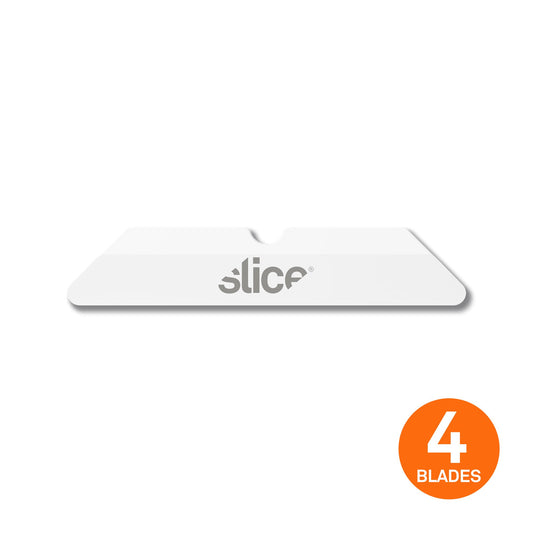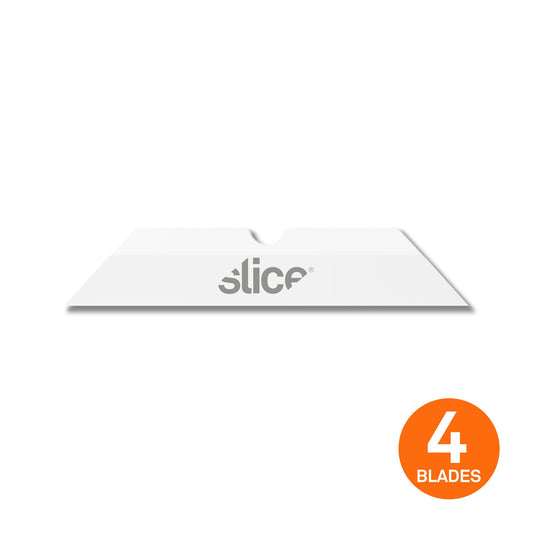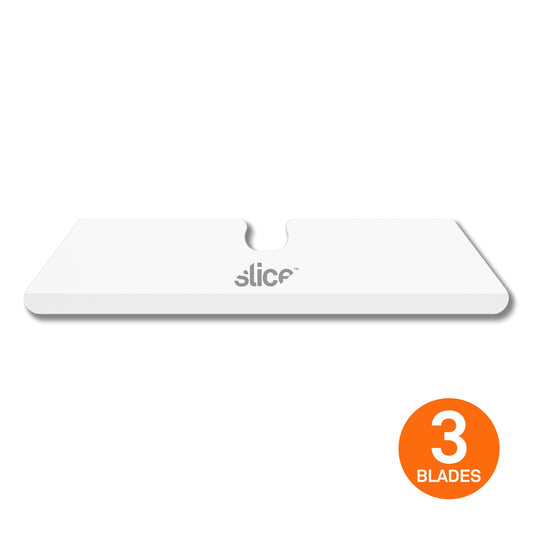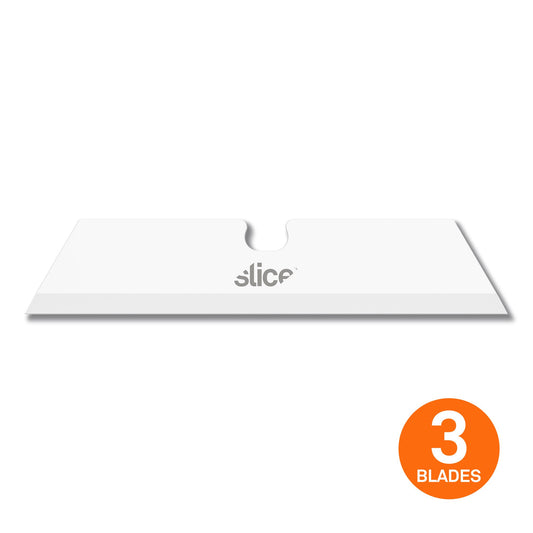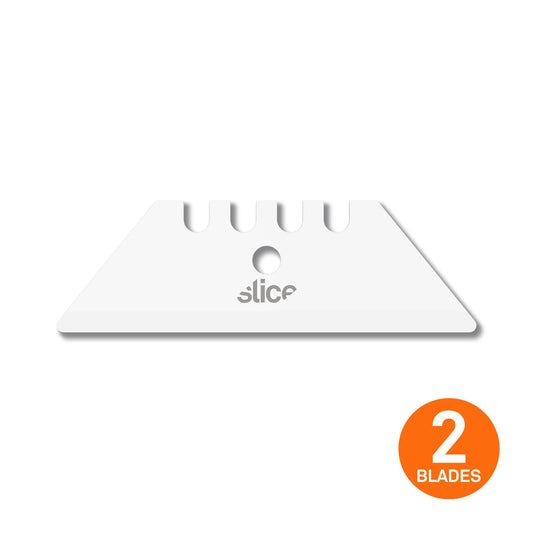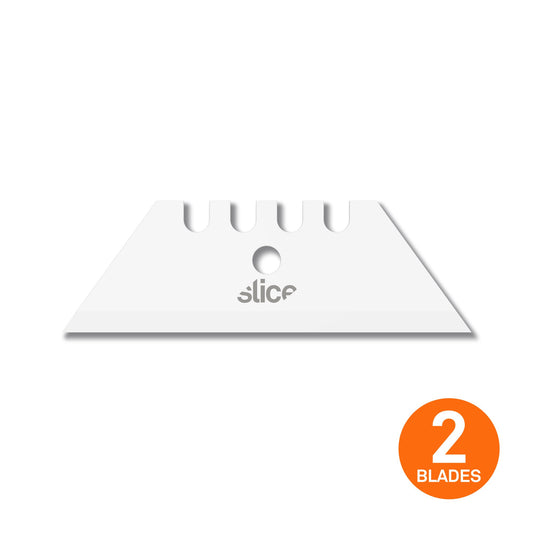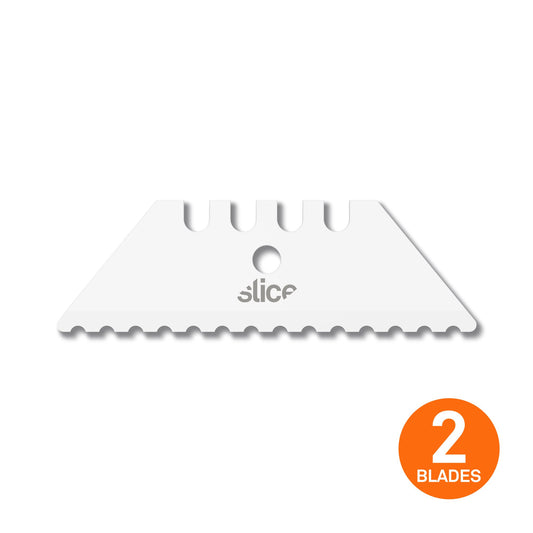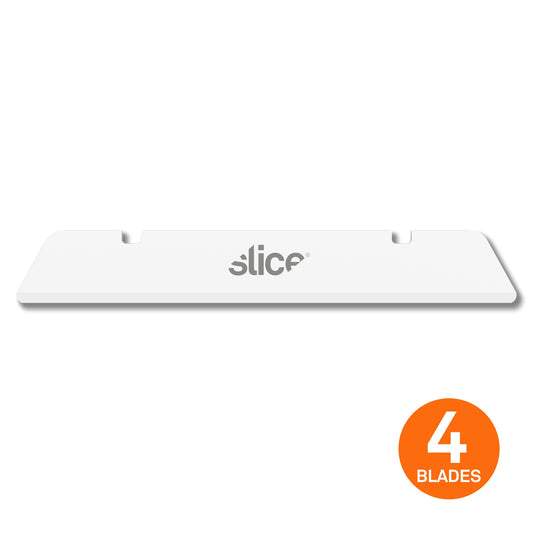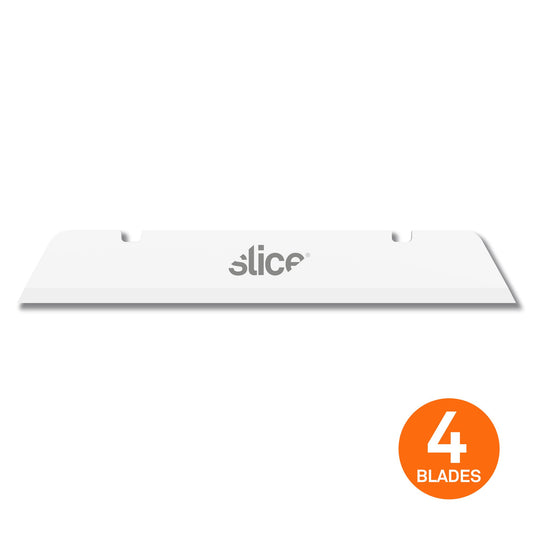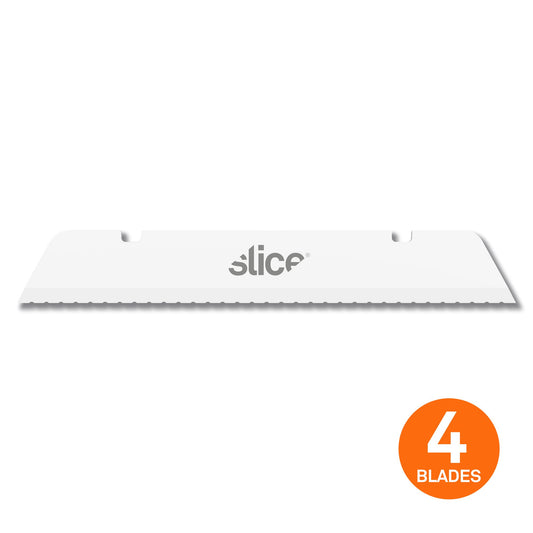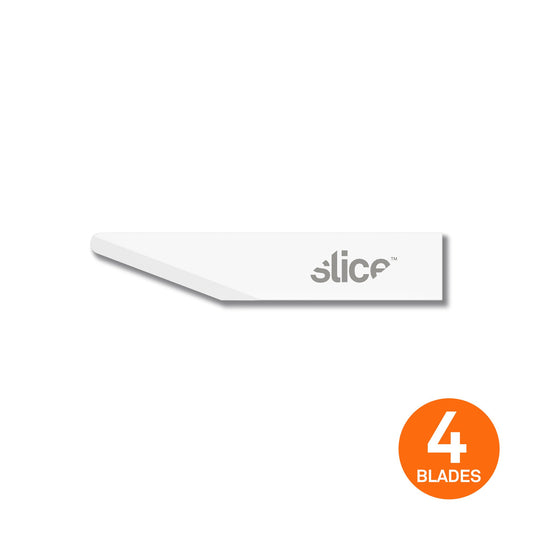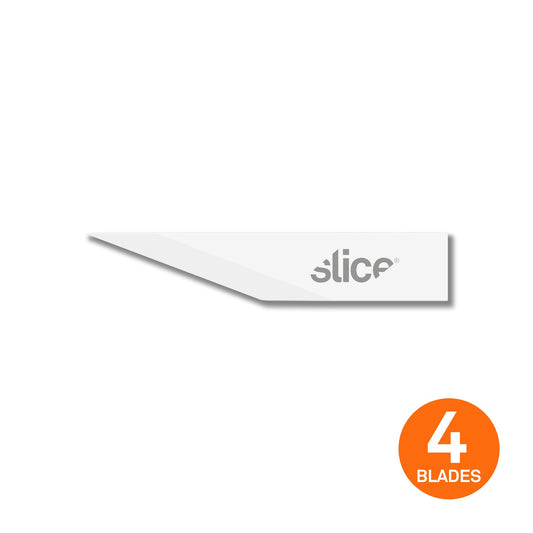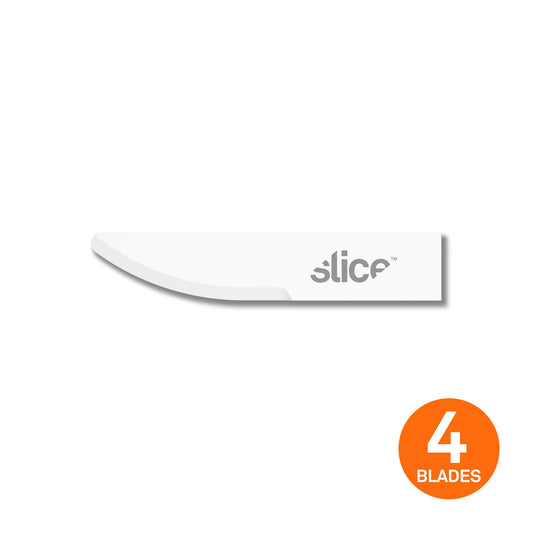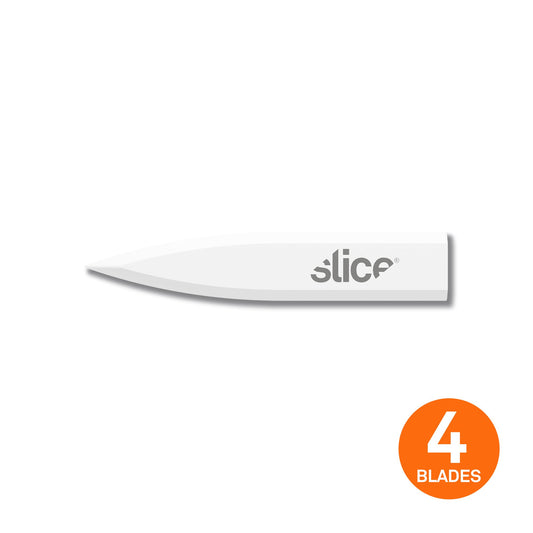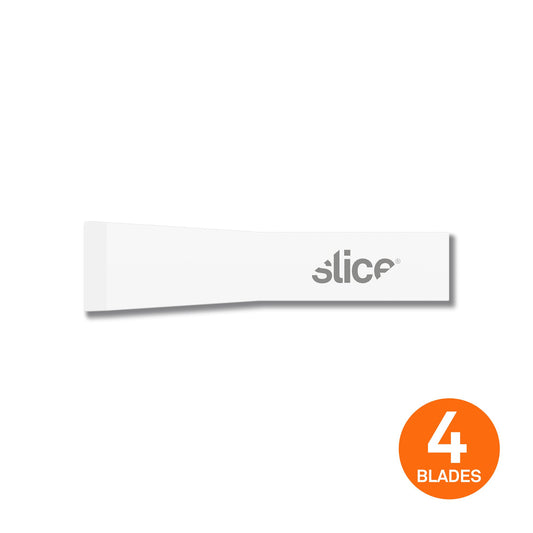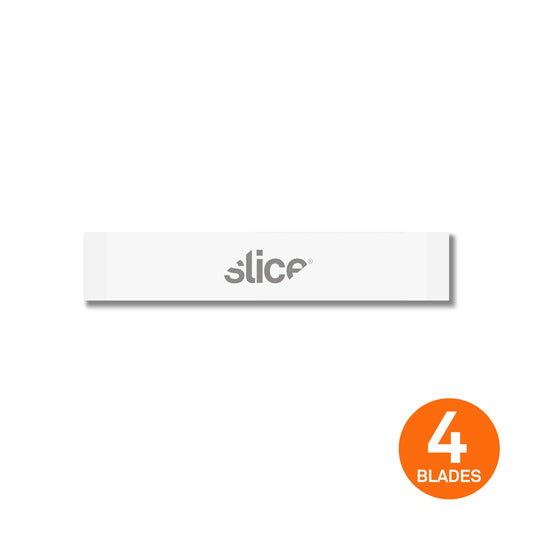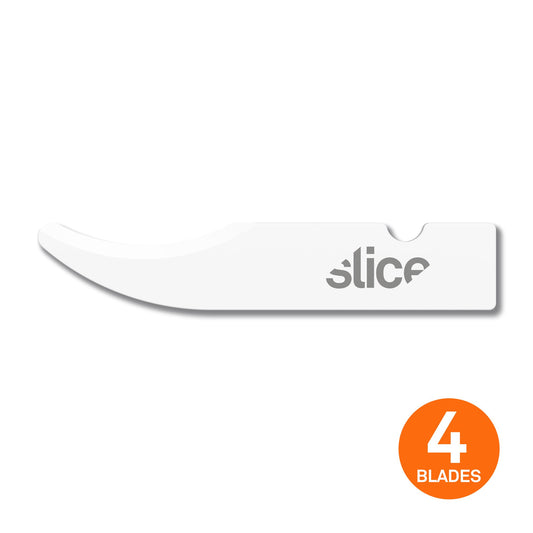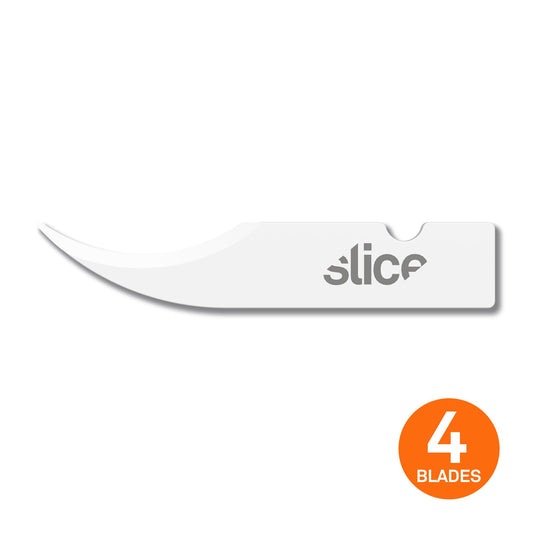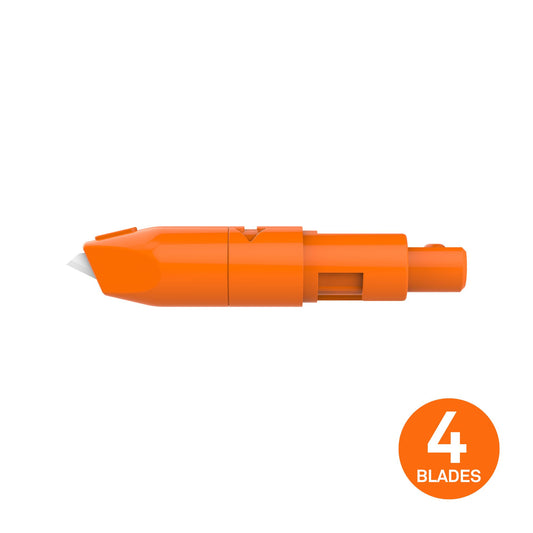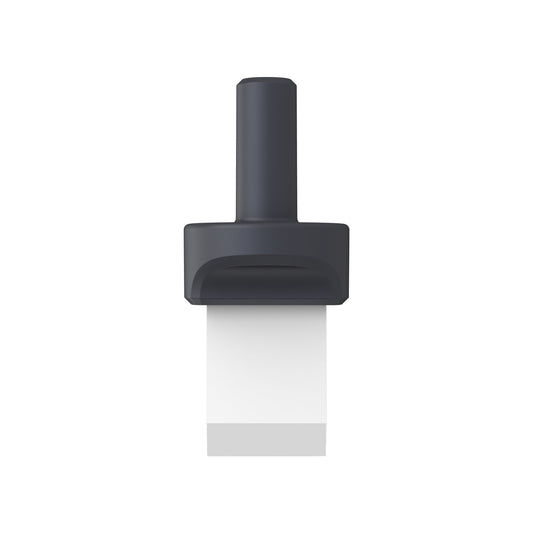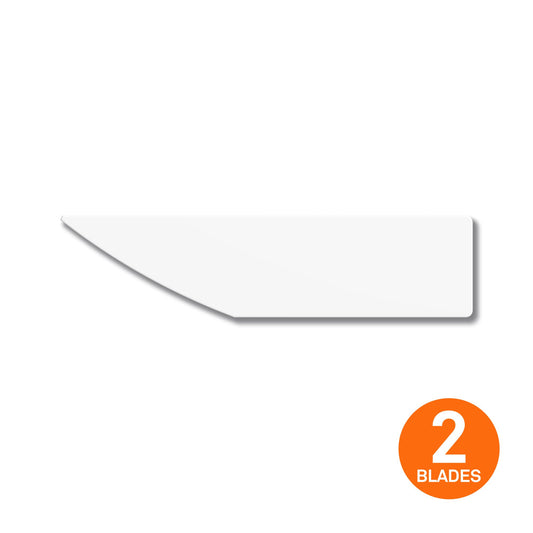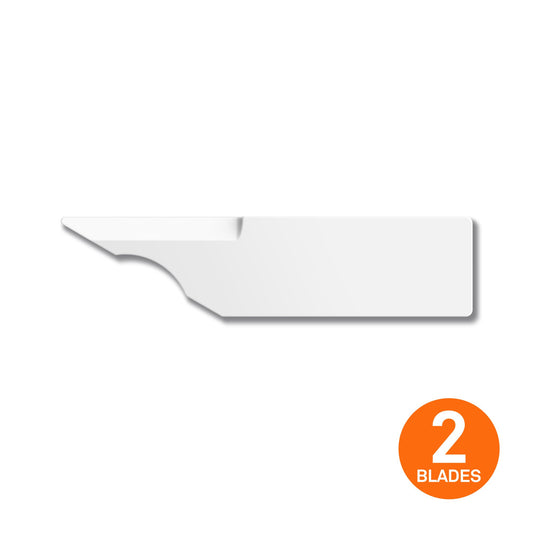Translation missing: zh-CN.accessibility.faq_content_title
Why Use Slice® Ceramic Blades?
Slice replacement blades are made with 100 percent zirconium oxide, an advanced ceramic material that combines a number of useful features to set it apart from typical steel blades. Zirconium oxide is non-sparking, non-conductive, non-magnetic, chemically inert, and never rusts. Our blades are safe up to 1600 degrees Celsius and therefore ideal for sterilization and laboratory settings.
Another defining property of zirconium oxide is its hardness. It measures 8.2 on the Mohs hardness scale, compared with 4.5 for steel. Slice takes advantage of this property to create craft blades, utility blades, box cutter blades, and more that stay sharp 11 times longer than steel.
Steel blade manufacturers sharpen their edges aggressively—way beyond what's needed to cut materials—in order to compensate for the softer metal's rapid dulling. Zirconium oxide's natural edge retention allows for Slice's proprietary finger-friendly® grind, which is designed to be safer to touch while maintaining its cutting performance. It’s important to note, though, that the safety edge is unique to Slice and doesn’t apply to other ceramic blades. Slice's longer lasting blades also reduce potentially dangerous blade handling, as they don't need to be switched nearly as often as steel. And, because of their safer edge, Slice's recyclable blades do not require special sharps disposal boxes.
Another defining property of zirconium oxide is its hardness. It measures 8.2 on the Mohs hardness scale, compared with 4.5 for steel. Slice takes advantage of this property to create craft blades, utility blades, box cutter blades, and more that stay sharp 11 times longer than steel.
Steel blade manufacturers sharpen their edges aggressively—way beyond what's needed to cut materials—in order to compensate for the softer metal's rapid dulling. Zirconium oxide's natural edge retention allows for Slice's proprietary finger-friendly® grind, which is designed to be safer to touch while maintaining its cutting performance. It’s important to note, though, that the safety edge is unique to Slice and doesn’t apply to other ceramic blades. Slice's longer lasting blades also reduce potentially dangerous blade handling, as they don't need to be switched nearly as often as steel. And, because of their safer edge, Slice's recyclable blades do not require special sharps disposal boxes.
Do Slice Ceramic Replacement Blades Need Sharpening?
The short answer is no. Because advanced ceramic blades are so hard, they can't be sharpened with the same tools used to sharpen steel, which is much softer. Slice ceramic blades are sharpened by hand with a proprietary grind that provides their finger-friendly edge. This patented blade design can't be replicated outside the Slice manufacturing process. A Slice replacement blade lasts 11 times longer than steel, so the need for replacement is greatly reduced.
When Should You Replace Your Blade?
As with any cutting tool, you need to bring out a blade replacement as soon as your edge is too dull. It's important to reiterate that Slice blades do not start out as sharp as steel blades or ceramics from other manufacturers. In terms of safety, steel blades start out far too sharp. This is the manufacturer's way of compensating for a soft material that dulls too quickly. Other ceramics manufacturers imitate the same grind edge as steel. Slice blades start at an effective but safe sharpness level and take 11 times longer to dull than steel.
Even so, if you've been using your Slice box cutter for a while and you notice that it's taking much more pressure than is reasonable to cut, it might be time to break out some new box cutter blades. The same is true for our craft blades. Cutting tools are most dangerous when they are too sharp or too dull. Slice blades are never too sharp, but after a (long) time, they will eventually dull. That's when slipping accidents might occur, so it's best to replace your blade then.
Keep in mind that our box cutter, utility blades, and 10535 chisel blades are double-edged, or reversible. When you feel that your blade is too dull, flip it over for a fresh edge.
Even so, if you've been using your Slice box cutter for a while and you notice that it's taking much more pressure than is reasonable to cut, it might be time to break out some new box cutter blades. The same is true for our craft blades. Cutting tools are most dangerous when they are too sharp or too dull. Slice blades are never too sharp, but after a (long) time, they will eventually dull. That's when slipping accidents might occur, so it's best to replace your blade then.
Keep in mind that our box cutter, utility blades, and 10535 chisel blades are double-edged, or reversible. When you feel that your blade is too dull, flip it over for a fresh edge.
More About Slice Box Cutter Replacement Blades
Slice box cutter blades, or ceramic replacement blades, are compatible with a number of different Slice tools. These include all our models of box cutter, as well as our pen cutters and the Mini Cutter. As with all Slice tools with replaceable blades, these cutters are designed with easy no-tool blade change features.
Slice box cutter blades come with a choice of a pointed tip (for better initiating a precise cut or for piercing material) or a rounded tip, which provides an added level of safety.
Slice box cutter blades come with a choice of a pointed tip (for better initiating a precise cut or for piercing material) or a rounded tip, which provides an added level of safety.
More About Slice Utility Knife Replacement Blades
Slice makes two different types of utility knife blades: blades designed for our line of utility knives, and blades meant to replace traditional dangerous metal blades in standard, third-party utility knife handles.
We make both pointed-tip and rounded-tip utility blade types for Slice handles. The best utility knife blades for you will depend on your application. Do you need to initiate a cut with precision or pierce through your material? A pointed-tip utility knife blade will work best. If your cuts don't need a precise initiation and safety is your main concern, rounded-tip utility knife blades are your best bet.
We make both pointed-tip and rounded-tip utility blade types for Slice handles. The best utility knife blades for you will depend on your application. Do you need to initiate a cut with precision or pierce through your material? A pointed-tip utility knife blade will work best. If your cuts don't need a precise initiation and safety is your main concern, rounded-tip utility knife blades are your best bet.
More About Slice Craft Knife Blades
Our craft blades are designed exclusively for use in Slice craft handles: the 10548 Craft Knife, the 10589 Craft Knife (Safety Cap), the 10568 Scalpel, and the 10580 Precision Knife. Like most of our replacement blades, our craft knife blades come with options. These include: the straight-edge, rounded-tip blade, the curved-edge, rounded-tip blade, concave-edge seam ripper blades, a straight edge, pointed-tip blade, two styles of chisel blade, and a corner-stripping blade. To change our finger-friendly replacement blades, just pull the old blade out and slide the new one into your craft knife.

